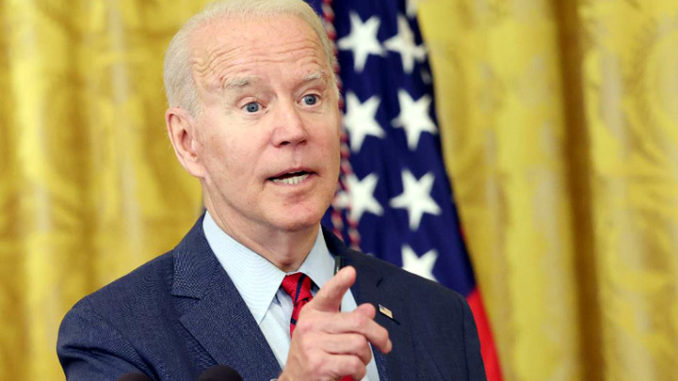
WASHINGTON (TIP): President Joe Biden said Thursday, June 24, he has agreed to a deal on infrastructure with a bipartisan group of senators after White House officials and the senators had a massive breakthrough the night before in their infrastructure negotiations.
Both Republican and Democratic senators said Wednesday, June 23 evening there was an agreement reached with White House officials and 10 senators on a bipartisan infrastructure deal. And on Thursday afternoon, Biden said he had signed off on the agreement.
Though hurdles remain — it’s unclear if the proposal will have enough support from GOP senators or progressive lawmakers to end up as law — the announced agreement is a significant development that could pave the way for passage of a chunk of Biden’s domestic agenda. “We all agree that none of us got all we wanted. I clearly didn’t get all I wanted, they gave more than I think maybe what they were planning to give in the first place,” Biden said. “But this reminds me of the days when we used to get an awful lot done up in the United States Congress.”
The President said: “Bipartisan deals mean compromise.” Biden said later in the day that he would not sign the bipartisan infrastructure bill unless the investments he has proposed in his American Families Plan, which Democratic leadership plans on passing through the budget reconciliation process, also end up on his desk. “If this is the only thing that comes to me, I’m not signing it. It’s in tandem,” Biden said. The President said: “The bipartisan bill from the very beginning was understood there’s going to have to be the second part of it. I’m not just signing the bipartisan bill and forgetting about the rest that I proposed. I proposed a significant piece of legislation in three parts. And all, all three parts are equally important.” “For me, investment in our physical and human infrastructure (are) inextricably intertwined. Both make us better off and stronger,” Biden said.
And House Speaker Nancy Pelosi said Thursday, June 24, that the House won’t take up the bipartisan bill until the Senate passes the larger, more sweeping infrastructure package through budget reconciliation. Senate Minority Leader Mitch McConnell later expressed deep pessimism on Fox News over Democrats’ push to pass both the bipartisan deal and a reconciliation bill.
“What it does is put my members, including myself, who were optimistic about doing a bipartisan infrastructure bill in a position of our Democratic friends having to guarantee that the 2017 tax bill is unwound. That’s our one red line,” the Kentucky Republican said.
Republicans are grappling with whether to support the bipartisan deal, knowing that Democrats can push through a reconciliation bill either way, or to oppose the bipartisan measure and let Democrats own everything. McConnell’s rhetoric Thursday, June 24 evening indicated he may be leaning towards embracing the latter argument.
And Sen. Lindsey Graham, a South Carolina Republican who earlier had signed on to the framework deal with a few other GOP senators, tweeted: “If reports are accurate that President Biden is refusing to sign a bipartisan deal unless reconciliation is also passed, that would be the ultimate deal breaker for me.”
A lot of work remains on the policy and drafting side of the proposal. But Biden and his team have grown increasingly bullish on the pathway a bipartisan agreement lays out for moving the full scope of the President’s $4 trillion economic agenda.
Many details of the plan remain unclear. But the total cost of the plan is $1.2 trillion over eight years, with $559 billion in new spending, multiple sources familiar with the matter tell CNN.
This proposal is significantly less than what Biden had initially proposed. The President initially put forward a $2.25 trillion plan to rebuild the nation’s infrastructure and shift to greener energy over the next eight years.
But after their late-night meeting on Wednesday with White House officials, Democratic leaders said they planned to move forward with a much larger Democratic-only approach to dramatically expand the social safety plan in addition to the bipartisan infrastructure plan.
Romney and Manchin said the bipartisan proposal is fully paid for and offsets the new spending. How to pay for the proposal has been a major point of contention during the negotiations.
(Source: CNN)





Be the first to comment